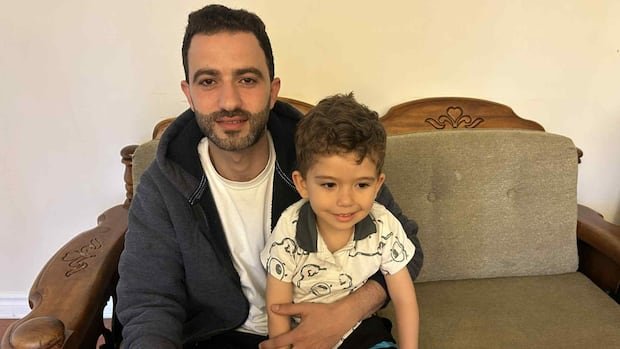Upon his arrival in Montreal from Gaza last September, Nidal Zaqout had hoped for a fresh start. However, the challenges persisted despite the safety he sought. Facing a three-month limit on public health coverage, Zaqout and his family grappled with the uncertainty of accessing healthcare, having escaped the deadly assaults in Gaza by Israel.
With a household burdened by health issues, including his father’s severe knee pain and his mother’s various ailments, the fear of falling ill without Quebec health insurance (RAMQ) loomed large. The financial strain of seeking medical care without insurance weighed heavily on Zaqout, who highlighted the struggles faced by Gazan families in covering healthcare costs due to their displacement and loss.
Zaqout expressed gratitude towards the Canadian and Quebec governments for the safety and support they’ve received but emphasized the crucial need for access to healthcare. The uncertainty surrounding their health coverage stemmed from their temporary residency status under the program for Gazans, with Quebec drawing criticism for its failure to provide adequate healthcare coverage.
The plight of Gazan families, totaling 823 arrivals in Canada between October 2023 and May 2025, reflects the devastation caused by Israel’s actions in Gaza. The UN report condemning Israel for genocidal acts further underscored the dire circumstances faced by Palestinians, prompting calls for urgent healthcare support for Gazans in Quebec.
The disparity in healthcare coverage extension to Ukrainian refugees compared to Gazans raised concerns among healthcare professionals and advocates, highlighting the need for equitable access to essential services. Dr. Sophie Zhang and Khadijé Jizi emphasized the ongoing medical needs of Gazan patients and the adverse impact of lacking public coverage on vulnerable families, especially children.
Conflicting explanations from Quebec and Ottawa regarding health coverage eligibility for Gazans revealed bureaucratic hurdles and a lack of concrete action to address the healthcare crisis. The delayed response from authorities in extending coverage further exacerbated the vulnerability of Gazan families, drawing criticism for the perceived discriminatory treatment towards Palestinian and Arab communities.
Despite the challenges, Zaqout remains hopeful for a better future in Canada, aiming to utilize his nursing skills to serve the community. His desire for a medical card reflects the urgent need for healthcare access for Gazan families striving to rebuild their lives in unfamiliar territory.


